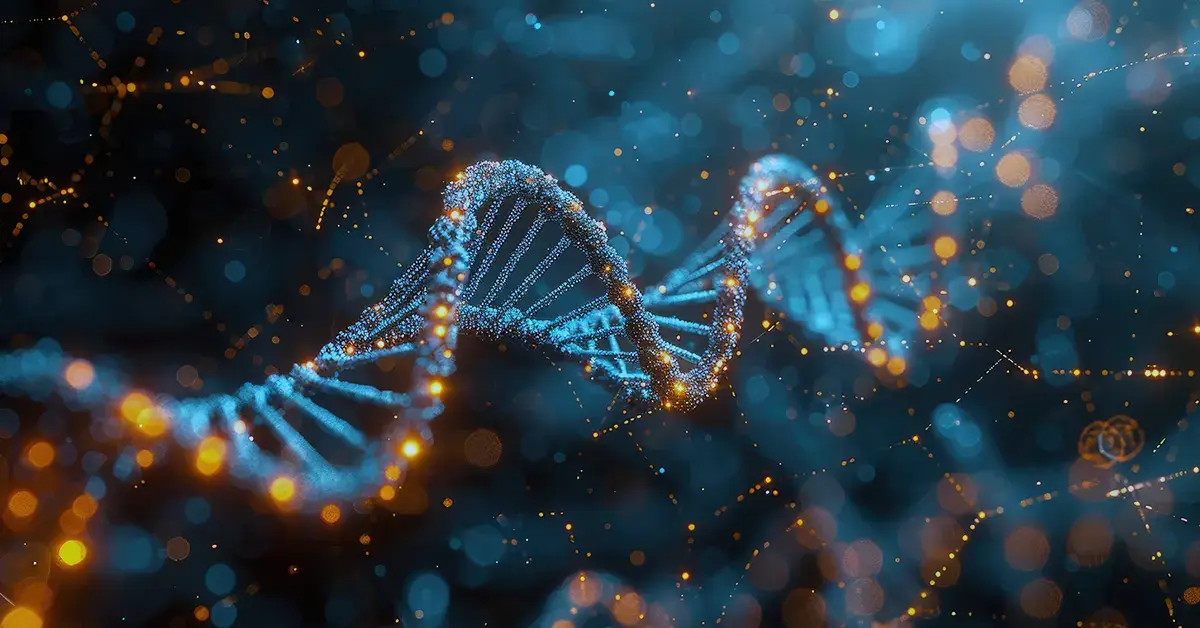Genetics is a fascinating branch of medical science that plays a crucial role in understanding how living organisms, including humans, are formed and function. At its core, genetics studies
genes, which are the tiny units inside our cells that determine everything about us — from the colour of our eyes to how our bodies fight diseases. Think of genes as the instruction manual
that guides our growth, development, and health.
What is Genetics?
Genetics is the study of how traits are passed down from parents to their children. These traits include things like physical characteristics (height, hair colour) and even susceptibility to certain
diseases. Every human being inherits half of their genes from their mother and half from their father, which is why family members often resemble one another or share similar health
conditions.
In the medical field, genetics helps doctors understand why some people are more likely to develop certain diseases and how treatments can be tailored to their specific genetic makeup.
For example, if a gene linked to a particular illness is identified, doctors can offer early diagnosis or preventive measures for that condition.
Genes and DNA
To fully understand genetics, we must first learn about DNA (deoxyribonucleic acid).DNA is like a twisted ladder that holds all our genetic information. Each step on the ladder represents a pair
of molecules called bases. The arrangement of these bases forms the genetic code, which carries instructions for building and maintaining an organism.
DNA is organised into structures called chromosomes. Humans have 46 chromosomes, with 23 coming from each parent. These chromosomes contain hundreds of genes, each of which is
responsible for a different function or characteristics. For example, one gene may control your blood type, while another affects your eye colour.
The Role of Genetics in Medicine
In medicine, genetics is incredibly important because it helps explain why some people are more likely to get certain diseases. Certain health conditions can be passed down from parents
to their children through genes. These are medical conditions caused by our genes and can include diseases like cystic fibrosis, sickle cell anaemia, and haemophilia.
Doctors and scientists are using genetics to better understand these diseases and to develop new treatments. For example, genetic testing can identify people who carry the gene for certain
disorders, allowing for early detection and intervention. This is particularly important in conditions like cancer, where specific genes, like BRCA1 and BRCA2, can increase the risk of breast and ovarian cancer. Identifying these genes early on can help doctors recommend preventive measures, such as more frequent screenings or even preventive surgery.
Genetic Testing
Genetic testing is a medical tool that can analyse an individual’s DNA to look for changes or mutations in their genes. This testing is used to determine whether someone is at risk for
developing a genetic disorder or if they might pass it on to their children. It’s a powerful tool in modern medicine that allows for early diagnosis and more personalised treatment plans.
For example, if a genetic test shows that someone carries a gene for a disease like Huntington’s or muscular dystrophy, doctors can provide them with information about what to expect and how to manage the condition. Additionally, genetic testing can help couples who are planning to have children to understand their chances of passing on certain genetic conditions.
Gene Therapy: A New Horizon
One of the most exciting developments in genetics is gene therapy, a medical technique that involves changing or replacing faulty genes to treat or prevent diseases. Gene therapy holds
promise for treating genetic disorders that currently have no cure. In this process, scientists can modify genes in the cells to correct the cause of a disease. Though gene therapy is still in its early stages, it offers hope for people with conditions like cystic fibrosis, certain types of blindness, and even some cancers.
Genetics is a rapidly growing field in medical science that helps us understand how our bodies work, how diseases develop, and how we can prevent or treat them. It is at the heart of many
modern medical advances, from genetic testing to personalised medicine. As our understanding of genetics grows, so does the potential to revolutionise healthcare and offer new treatments for
previously untreatable diseases. By studying genetics, we are learning how to better protect our health and the health of future generations
